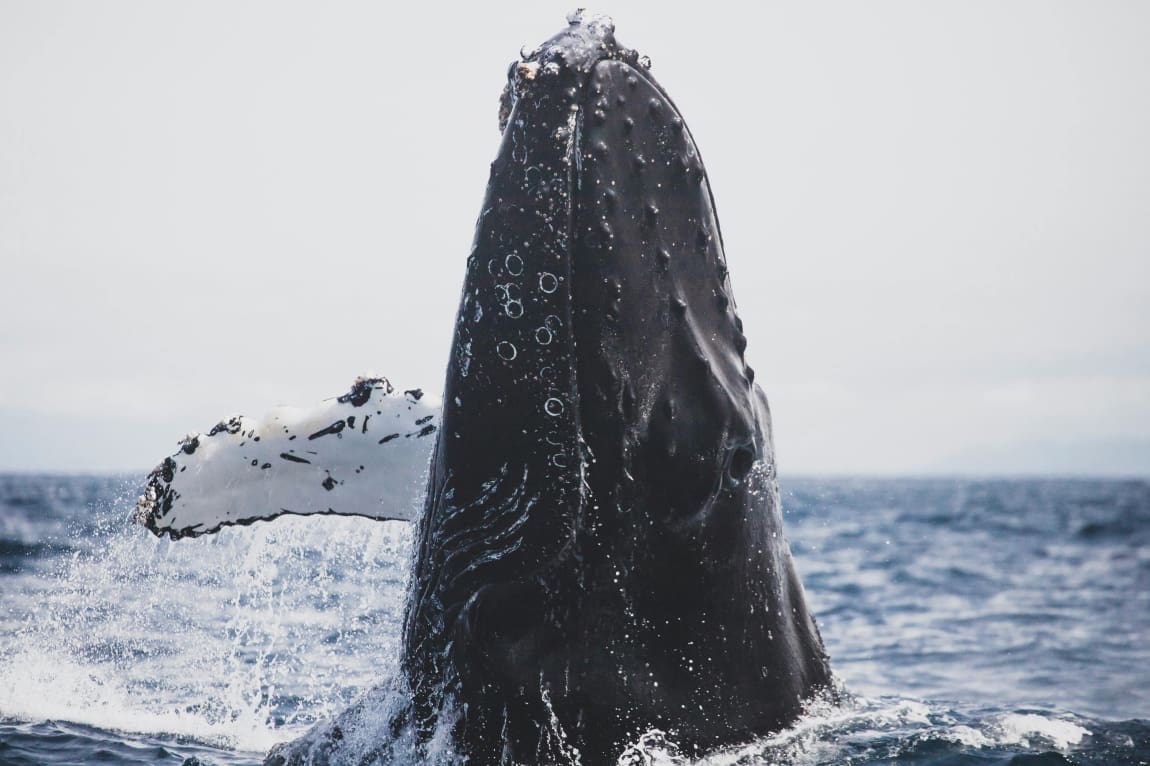Tokyo, Japan (AFP) – Japan launched on Tuesday a new “mothership” for its whaling fleet, aiming to hunt around 200 of the marine mammals this year.
The nearly 9,300-tonne Kangei Maru, which set off from Shimonoseki and can process and store whale meat on board, replaces a previous lead vessel which was retired last year.
Why can Japan catch whales?
After an International Whaling Commission (IWC) moratorium on commercial whaling, Japan carried on hunting whales for “scientific” purposes, killing hundreds in the Antarctic and North Pacific.
After years of tensions that took a toll on its international reputation, Japan in 2019 quit the IWC and resumed commercial whaling inside its territorial waters and exclusive economic zone.
Norway and Iceland are the only other countries to still conduct commercial whaling, while Indigenous groups also hunt in certain areas of the United States and elsewhere.
What whales does Japan hunt?
Japan goes after Bryde’s, minke and sei, and wants to expand the list to include fin whales, the second-largest animal species on the planet after the blue whale.
The government says that these species are “abundant” and that catching them around Japan in limited numbers — last year it killed 294 — is sustainable.
But while the Bryde’s and common minke are listed as being of “least concern” on the International Union for the Conservation of Nature’s Red List, globally the sei is “endangered”.
“Fin whales are listed as vulnerable by IUCN and the status of the population around Japan in the North Pacific is not known,” said Alexia Wellbelove from the Australian Marine Conservation Society.
“This is not a good basis on which to base a new whaling operation.”
Japan says it “intends to conduct periodic scientific (research) for the abundance estimates of target species, making it possible for… whaling to operate in a sustainable manner”.
Why does Japan hunt whales?
Besides scientific research, Tokyo says that eating whale meat is part of Japanese culture and an issue of “food security” in the resource-poor country.
“We can never ignore the possible threat of food security in the future caused by a shortage of food supply due to the ongoing increase of the global population and/or outbreak of pandemics on livestock,” a government “Frequently Asked Questions” webpage says.
But while consumption was high in the decades after World War II, since 2019 it has slumped to around 1,000 or 2,000 tonnes per year.
“Whale meat and blubber are also often contaminated with high levels of toxins such as mercury and PCBs, making it unsafe for human consumption,” said Nicola Beynon at the Humane Society International Australia.
“Instead, keeping whales alive in the ocean can provide financial benefits, and therefore food security, to communities reliant on whale watching income, as well as contributing to productive oceans and healthy fish stocks thanks to their role as ecosystem engineers.”
Japan concedes there are elevated levels of mercury but says eating whale meat does “no harm to human health” — and in fact contains “good-quality proteins and unsaturated fatty acids”.
What other dangers do whales face?
Whale stocks are still recovering from the era of widespread commercial whaling.
Campaigners say that the animals face myriad threats including pollution, getting caught in fishing nets, collisions with vessels, ocean noise and warming oceans.
“Scientists now tell us that whales play an important role as ecosystem servicers, adding to oceanic resilience, increasing abundant fish populations and helping to regulate the ocean carbon cycle which provides the lungs of the planet,” said Patrick Ramage from the International Fund for Animal Welfare.
“Japan’s commercial whaling slept walked into the 21st century. It’s time for it to end,” Ramage told AFP.
kh-stu/kaf/sco
© Agence France-Presse
Featured image credit: Andre Estevez | Pexels




